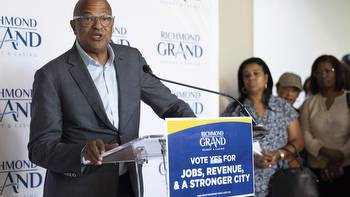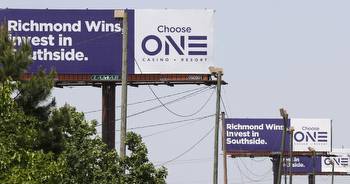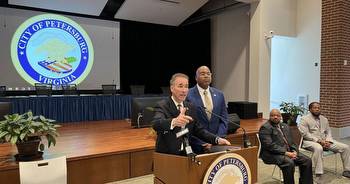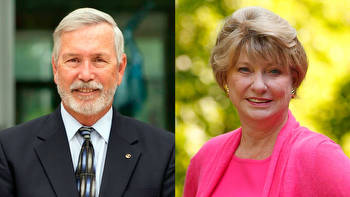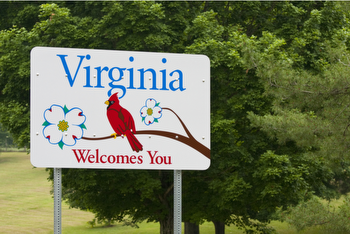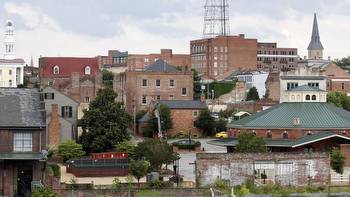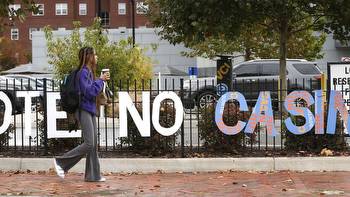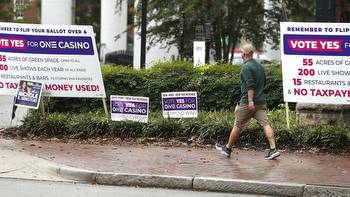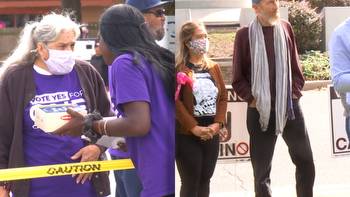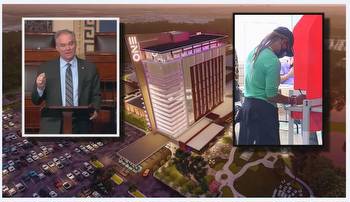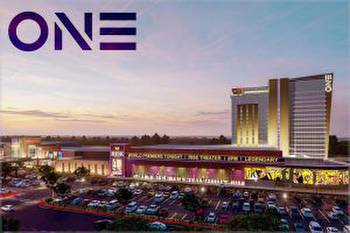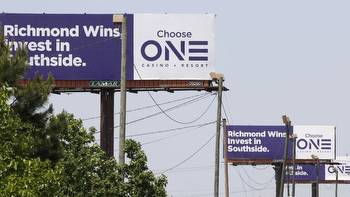Who Really Voted Down The Casino Referendum?
The casino referendum is the issue that won’t go away — kind of like a desperate or compulsive gambler who stays put because the next hand is the winning hand, or the slot player who is completely convinced the next pull of that handle will deliver the jackpot. At some point, you need to walk away.
The relentless effort to build a casino in Richmond and revive the referendum for the third time in 2023 (it failed in 2021 and tried but failed to return to the ballot in 2022) is about to become the hottest potato tossed around the General Assembly session when it opens next week. I won’t bore you to tears with recapping the details from the past few months — this is a look back at the vote in 2021 and what it means in 2023 — but you can read more about the non-stop casino drama here, here, and here, if you so desire.
The people voted the casino down in 2021 in a referendum that was required by the state, but Mayor Stoney and others looked at the results and concluded the easiest and most convenient explanation of the final tally could be explained by race. Except, what Stoney and others maybe didn’t realize is that the voting data show that the referendum failed because a huge number of Terry McAuliffe voters also voted against the casino.
The Stage
Before we get into the data, however, let’s set the stage. Richmond is lobbying the legislature hard as we speak and will stop at nothing to get the referendum back on the ballot in 2023. Petersburg wants to have a shot at a casino referendum next year and make Richmond wait a few years since they already tried and failed. If Richmond does get approval for another referendum, the casino applicant in Petersburg has said they will not move forward with their plan and there would be no need for a referendum in Petersburg. So the stakes are clear and the battle has already been joined. Stay tuned.
The inability of Richmond’s leaders to get the casino application/selection process completed and on the ballot for the 2020 election (like the other four casinos in Virginia did) cost them dearly. In a presidential year, that referendum would have been approved easily given the high level of turnout (the other four cities approved their referendums in 2020 with at least 65 percent). We saw a tight gubernatorial race in 2021 (with a record voter turnout for a gubernatorial election, but still lower than a presidential year), and the casino referendum went down to a very narrow defeat.
In the aftermath, both Mayor Stoney and the ONE Casino CEO Alfred Liggins said they were disappointed, but the people had spoken and the voice of the people had to be respected. Then, within a few days, both Stoney and Liggins jettisoned their respect for the voting process and the voters’ voices and the push for another referendum was on.
Most analysis of that 2021 vote noted simply that many of the “no” votes against the project came from wealthier and whiter areas of the City, and those living closest to the proposed casino location adjacent to the Philip Morris facility in South Richmond voted heavily in favor. And that is partly true, but the margin of the defeat was only about 1,500 votes out of the nearly 79,000 cast on the casino referendum citywide. But since the margin was so narrow and the stakes had been so massive, of course someone had to get blamed.
It wasn’t the fault of the colossal pro-casino campaign that spent $2.6 million on mailers and ads and a zillion billboards trying to get voters to vote YES.
And it wasn’t Stoney’s fault, even though he was very busy campaigning across Virginia trying to elect Terry McAuliffe to a second term as governor and didn’t spend much time doing pro-casino rallies in Richmond in the final days or weeks.
Ninth District Councilman Mike Jones blamed other neighborhoods even though it was a citywide referendum, not a neighborhood one. He said: “I don’t think Richmond said no to the casino. You see the Southside said yes to the casino. What you see are other neighborhoods trying to dictate what goes on a particular part of the city.”
The Richmond Times-Dispatch reported that James “J.J.” Minor, president of the Richmond chapter of the NAACP and a paid volunteer organizer for Urban One’s pro-casino campaign, said, “It had a lot of support, but unfortunately as you can see with the lines, you can see who didn’t support it. All I can say is welcome to old Richmond.”
Stoney told CBS6: “We are still a divided community not just by the river but race as well.” Stoney explained. “I don’t think the vote was about race. I think when you look at the map this is where our white residents live, and this is where our black residents live. Our white residents voted no. Our black residents many voted yes.”
The Times-Dispatch article offered its own instant “analysis:” “Two predominantly white City Council districts where other casinos projects had been proposed were the most strongly opposed to the casino on Tuesday. In the 1st and 2nd Districts, voters rejected the casino in South Richmond by a 2-to-1 margin. Precincts in the North Side 3rd District were about evenly split on the ballot measure.”
So the insinuation is clear, but a deeper look at the data reveals something else.
For example, the RT-D didn’t mention that McAuliffe won all three of the districts it cited (the 1st, 2nd, and 3rd) by overwhelming margins — he won 25 of the 28 precincts in those three districts, and in 16 of those precincts he won more than 70 percent of the vote. But the YES Casino vote received nowhere near that kind of approval — only six of the 25 precincts McAuliffe won in these districts received a YES Casino vote of 50 percent or higher. Does that data indicate or prove that race was the explanation behind those residents voting against the casino in those districts? Most of them voted for McAuliffe by a huge margin.
By the start of 2022, Stoney was still talking about the reasons for the referendum’s narrow failure. He told the RT-D in January that he heard from others in the black community that the referendum vote was “emblematic of their struggle to be heard. What I heard almost made me want to cry. They said: ‘I’ve been living here my whole life. Why don’t they let us have anything that we want?’”
Asked who the ‘they’ was that Stoney was referring to, he answered: “The naysayers and detractors; those who want Richmond to be what it was in the 1960s or 1980s. We have to move beyond for a Richmond of the 21st century.”
To accept the premise proffered by the Mayor and others is to overlook the fact that a very sizable number of people all across the City simply split their ballot – they voted FOR McAuliffe for Governor and voted AGAINST the casino.
The Data
The gubernatorial race in 2021 was very close statewide (50.6 percent Glenn Youngkin v. 48.6 percent McAuliffe, with a margin of victory for Youngkin of 63,480 votes statewide out of 2.66 million votes cast), but a blowout in the City (77 percent McAuliffe v. 20 percent Youngkin – 80,051 total votes for Governor in the City with a margin of victory for McAuliffe of 46,216 votes).
Compare that with the casino referendum, which received 78,993 total votes and failed on a 51 percent to 49 percent vote, a spread of just 1,493 votes. (NOTE: all percentages in this post are rounded). That means that only 1,058 fewer votes were cast for the casino referendum than were cast for Governor (of course, some people probably voted for Governor without voting on the casino and vice-versa, but that is not a large overall gap).
Put simply, more than three out of four votes in the City were cast for McAuliffe, but only one out of two voted YES Casino.
Democrat McAuliffe received 61,929 votes in the City; Republican Glenn Youngkin received 15,713 votes; Independent Princess Blanding received 2,409 votes.
Put another way, more than half of the 40,243 NO Casino votes came from voters who also voted for Terry McAuliffe. Why would the Mayor make such accusations about the intentions and motivations of NO Casino voters when just days and weeks earlier he had been trying to convince them to vote for McAuliffe and the casino? It is even more bewildering since Stoney was the co-chair of McAuliffe’s campaign.
Jon Baliles is a former Richmond City Councilman. This column was published originally in his blog RVA 5×5 and is republished here with permission.







